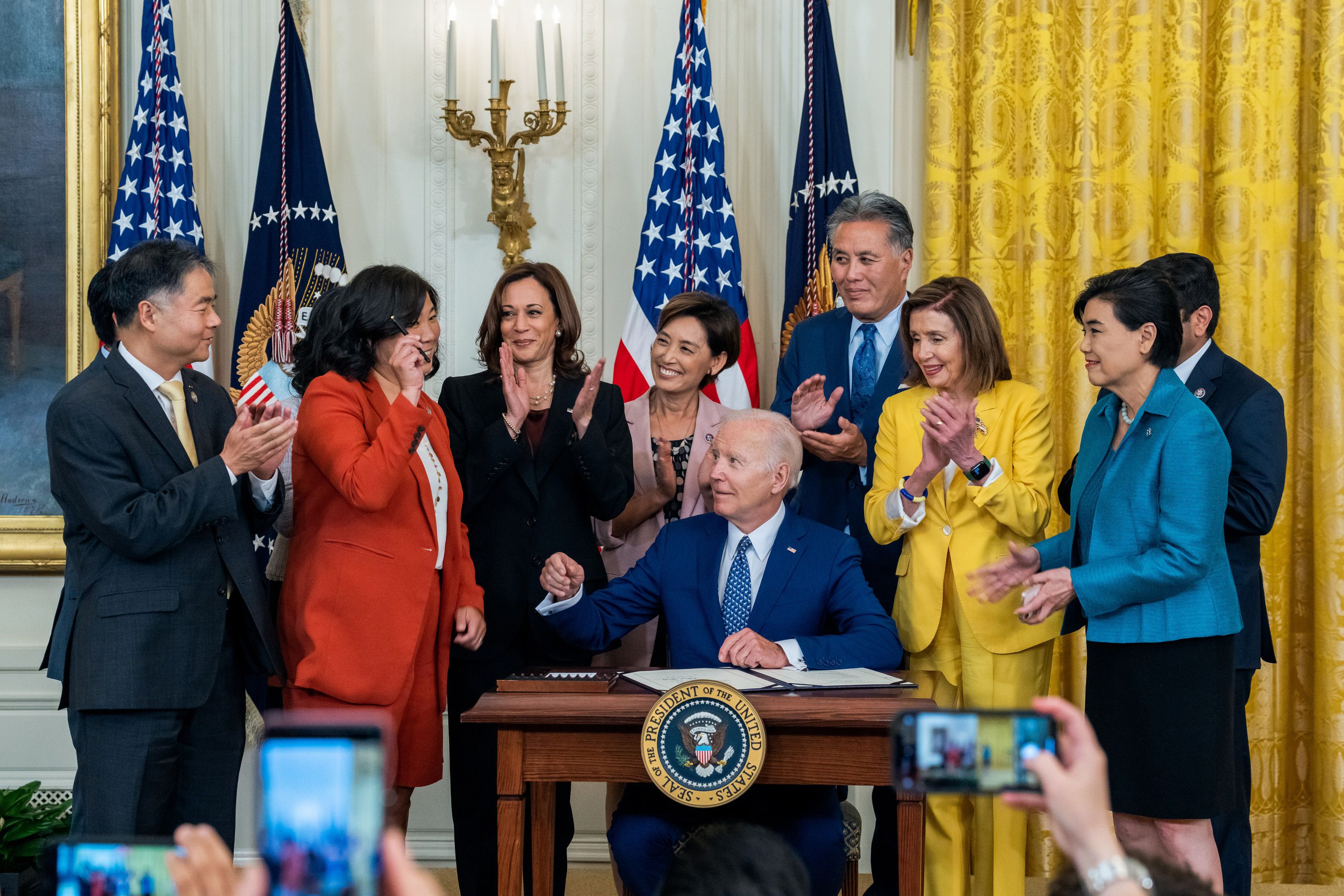Grace Meng Elected Chair of the Congressional Asian Pacific American Caucus for the 119th Congress

WASHINGTON – Rep. Grace Meng (D-NY) was elected Chair of the Congressional Asian Pacific American Caucus (CAPAC) on Wednesday, succeeding Rep. Judy Chu (D-CA), who will now serve as Chair Emerita.
CAPAC, established 30 years ago, was founded to ensure that the voices of the nation’s growing Asian American, Native Hawaiian, and Pacific Islander (AANHPI) communities are not only heard but also strongly represented at the federal level. Its members include congressional representatives of AANHPI descent, as well as others deeply committed to advancing the well-being of the AANHPI community. With the 2024 election concluded, CAPAC is preparing for the 119th Congress with a leadership transition.
In addition to Meng’s elevation from First Vice-Chair to Chair, Rep. Mark Takano (D-CA) has assumed the role of First Vice-Chair, while Rep. Jill Tokuda (D-HI) was elected Second Vice-Chair. Rep. Ami Bera, M.D. (D-CA), replaced Rep. Ted Lieu (D-CA) as the Whip. Among the newly elected AANHPI members of Congress, Suhas Subramanyam (D-VA) was chosen as Freshman Representative, succeeding Tokuda. CAPAC's new leadership team, like its previous one, does not include any Republicans.
Before transitioning to the role of Chair Emerita, Chu served as CAPAC’s Chair for 14 years. “When I started, we had nine AANHPI members of Congress. Today we look forward to having 25 AANHPI members of Congress,” said Chu, “Our communities will certainly face incredible challenges in the years to come under a second Trump Administration, but I have no doubt that our Chair-elect, Congressmember Grace Meng, will deftly lead this caucus as our community’s voice within the halls of Congress, protecting our rights and strengthening our power. ”
Since her election to Congress in 2012, Meng has been a steadfast advocate for AANHPI inclusion. Notably, she introduced the COVID-19 Hate Crimes Act, which was signed into law in May 2021. This legislation addressed the surge in anti-Asian hate crimes during the pandemic by improving hate crime reporting, launching public education campaigns, and enhancing access to resources for AANHPI communities.
“It’s an honor to serve my colleagues as the next Chair of CAPAC," said Meng, the CAPAC Chair-elect. "I look forward to strengthening and growing the caucus, serving our diverse members, and fighting for policies that empower AANHPI communities across the country.”

Rep. Grace Meng (D-NY) holds up the pen that President Joe Biden used to sign H.R. 3525, the “Commission to Study the Potential Creation of a National Museum of Asian Pacific American History and Culture Act”, Monday, June 13, 2022, in the East Room of the White House. Photo by Cameron Smith/White House
Meng, who will turn 50 next year, is nearly 20 years younger than her predecessor in CAPAC, and eight years younger than the median age of voting House lawmakers. Congressional caucuses like CAPAC are informal groups of members who share common interests, making their leadership competitions generally less contentious than those of Congressional committees, which are formal legislative bodies. Nevertheless, CAPAC’s leadership transition echoes a broader trend among Congressional Democrats to usher in a new generation of leaders.
This shift has already impacted key panels such as the House Judiciary Committee, House Agriculture Committee, and House Natural Resources Committee. Earlier today, millennial progressive star Rep. Alexandria Ocasio-Cortez (D-NY) announced her bid to become the top Democrat on the House Oversight Committee.
These efforts align with a yearslong push within the Democratic Party for older leaders to hand over the reins to a younger generation. It also comes as some critics point to 82-year-old President Biden's decision to delay his exit from the 2024 campaign as a source of frustration.

 Pingping Yin
Pingping Yin



